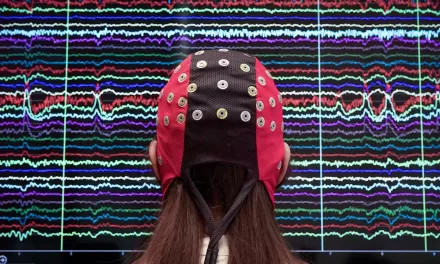Many young people, like Amelie, a French university student, feel that the COVID-19 pandemic and its lockdowns had a negative impact on their mental health. Amelie, who was 19 years old when the pandemic began in 2020, said that the pandemic triggered “an enormous depression” and that she is still receiving treatment for her mental health five years later.
Research shows that young people were especially impacted by the pandemic’s mental health effects, with a significant rise in depression and anxiety. A survey by France’s public health agency revealed that one-fifth of 18-24 year olds experienced depression in 2021. In the United States, according to the Centers for Disease Control and Prevention, 37 percent of high school students reported experiencing poor mental health in the same year. Similar findings were reported in a recent study of more than 700,000 Finnish teens published in The Lancet Psychiatry journal. The study indicated a rise in symptoms of generalized anxiety, depression, and social anxiety from pre-pandemic levels to 2021 and these levels remained high in 2023.
The pandemic’s effects are also being felt by the next generation. A 2023 review published in the journal Nature Human Behaviour found that children’s learning was significantly delayed and they have not yet caught up. The study’s lead author, Bastian Betthauser, said that this is “a real generational problem.”
These issues seem to persist beyond the COVID years. Ofsted, the UK’s education agency, reported an unprecedented number of school absences in the 2023/2024 academic year. The agency attributes this to a post-pandemic “shift in attitudes” where school attendance is viewed more casually.
Simon Kidwell, the principal of Hartford Manor primary school in England, said that the pandemic has created “a long tail of challenges”. While academics were addressed quickly, there has been “a huge spike in children needing to access mental health services,” he told AFP. He also mentioned a significant rise in the number of children with special educational needs and those requiring extra help with behavioral issues.
Younger children are also facing more speech and language problems, according to Kidwell.
The pandemic’s impact on children with ADHD or ASD was varied. Psychologist Selina Warlow said that “a lot of autistic children loved being in lockdown” because the school environment can be overwhelming for them. However, she acknowledged that other children with these conditions struggled due to the loss of routine and structure provided by school. Warlow also highlighted that many young children “did not get the early support they needed” due to the pandemic, and that early intervention can significantly impact a child’s development.











